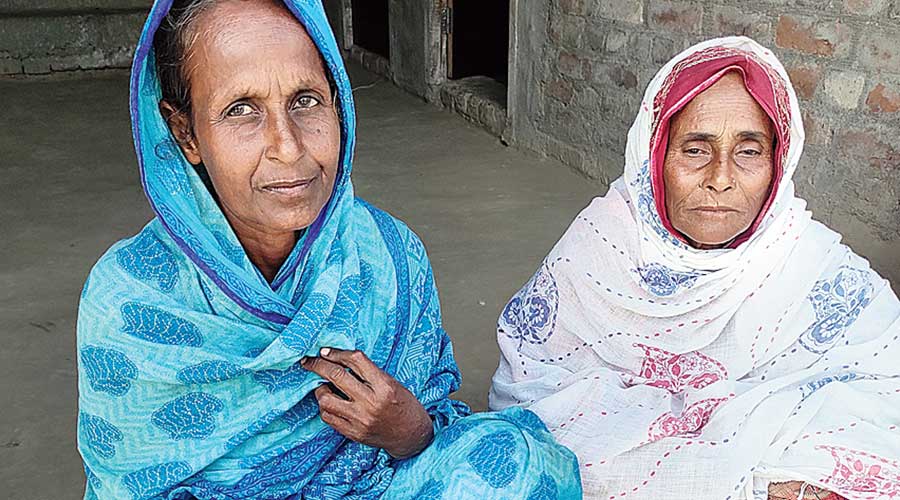The families of 22 men from Bahalnagar village in Murshidabad, who went to work in Jammu and Kashmir’s apple orchards for the harvest season, are spending sleepless nights since the killings of migrant workers by suspected militants.
Of around 100 men who went to the Valley for the season, the 22 are yet to return.
In October 2019, two months after the Narendra Modi government revoked the special status granted to Jammu and Kashmir, five men from Bahalnagar, were shot dead in Kashmir’s Kulgam by suspected militants.
The village of over 3,000 residents in Sagardighi earlier would send at least 500 men every harvest season to the apple orchards of the Valley. The numbers dwindled since 2019. Most migrant workers nowadays prefer to go to the southern states for work.
Bahalnagar’s Naitun Bibi, 57, is eagerly waiting for the Jammu Tawi Express sometime later this week. On board will be her husband Meraj Sheikh, 60, along with nine others from the village. Naitun lost the oldest of her four sons, Naimuddin Sheikh, 42, in 2019 to bullets in Kulgam.
“I am yet to get over the grief of losing my son. Now, there is this fear for my husband’s life, again in an apple orchard of Kashmir,” she said.
The group of 10 is currently stranded in Rajouri and were employed in Chitragam, barely 25km from Kulgam.
Tens of thousands from Murshidabad and Malda used to go to the Valley’s apple orchards every year to earn better in orchards and carpet-making units.
They got Rs 15,000-22,000 a month, besides free accommodation and food, from local employers known for their kindness and hospitality. At home, they can on an average earn Rs 6,000 a month agricultural labourers.
Twenty-eight-year-old Sattar Sheikh, the youngest of the four sons of Naitun and Meraj, said from Bahalnagar that he would never let his father leave home again.
“Before what happened to Dada (Naimuddin), I used to go to Kashmir for seasonal work for around 10 years. But since that tragedy, I haven’t gone. I had repeatedly asked Baba (Meraj) not to go,” he said.
“But he kept saying that the work there is very easy, the pay is good… that he knows everyone there, that the employers are incredibly kind... He went. If he returns safely this time, we will never let him leave again,” he added.
A group of seven was the last that managed to return to Bahalnagar on October 26. It included Ebadur Rahaman, 38, who rued that he was jobless at home.
“We had to run back home because of fear. Because militants are abducting and killing migrant workers again, we heard…. Initially, we were not paying much heed, but the local superintendent of police came and told us to get out as soon as possible. So we rushed out,” he said. “I don’t know about others, but I will never go there again…. I really will miss the work there though.”
Jangipur police district’s chief Y. Raghuvamshi said the migrant workers usually do not report to the police when they leave or return.
“We found out about some such returns and sought inputs by sending officials to the village. We are keeping tabs,” he said.
The 2019 tragedy led to a steady stream of VIPs, including chief minister Mamata Banerjee, visiting the village. These days, however, no visitor comes to enquire about the families. But villagers are grateful that at least the roads built for the VIPs in 2019 are permanent.
Other than for Kamruddin and Rafiqul families – with no eligible surviving members – the state government ensured jobs for the kin. The local Trinamul Congress leadership purportedly helps the two “overlooked” families with some financial assistance every month.
“All the families have been paid large amounts by the government and various NGOs,” said a source.











